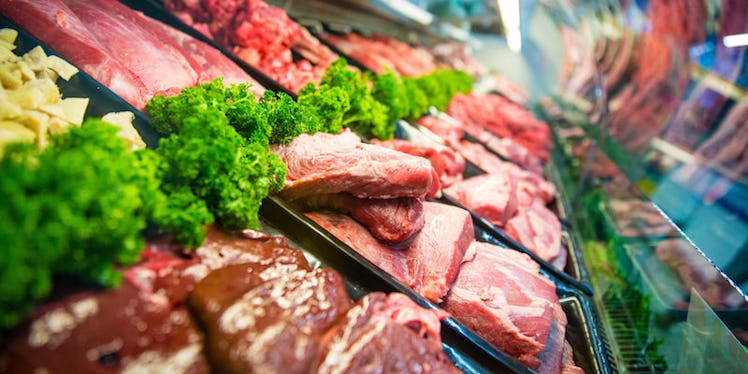
Slave Ship To Table: Why You Should Care Where Your Food Comes From
While some of us might suspect that our food comes from sketchy places, we often choose to ignore it. I mean, just because something is made with tons of preservatives doesn’t mean it’s any less delicious.
The packaging on our favorite foods likely lists ingredients we’ve never heard of before, but honestly, who cares? I’ve never faced major health issues because of an occasional candy bar and you probably haven’t either.
However, recent accusations against Costco call a different issue to attention: It’s not just the ingredients in our food that matters, but also the place it comes from.
That place -- in the case of Costco shrimp -- could be foreign slave ships. Yikes!
Apparently, this controversy has slipped under the radar for quite sometime, but a woman named Monica Sud is refusing to turn a blind eye.
She says Costco’s most popular fish product is only in stores as a result of Asian slave labor. She calls to attention the reports made by both The Guardian (about a year ago) and The Associated Press (earlier this year.)
As reports state, individuals in Southeast Asian countries who sought broker assistance in finding normal, legal jobs ended up elsewhere. Instead of being informed about noble work opportunities, as they expected, these men were sold to boat captains who used them as forced ship labor.
The shrimp they catch has allegedly ended up in various bulk stores including Walmart and Costco (among others). If these reports are true, this is some seriously scary stuff.
Now, Monica is only looking for a recall on the shrimp sold in California in the past four years. So if you live on the East Coast, or you haven’t been to Costco in half a decade, your shrimp is probably fine.
The real issue here goes beyond any isolated incident.
Everyone should be a lot more concerned when it comes to the path their food takes to land on their table. I’m no organic food snob myself, but this issue is something none of us should ignore.
When you go to buy shrimp -- or any food for that matter -- the guy behind the counter should be able to tell you exactly where it came from. And if he can’t...well, that’s a problem in and of itself.
When we’re dealing with issues of slavery, we can’t call our careless food-buying habits a victimless crime. Maybe we can’t control corrupt brokers from selling innocent Asian men into slavery, but we can decide not to support these actions with our hard-earned money.
I suspect -- and hope -- this Costco situation is not the norm.
I also suspect the executives at the corporation weren’t aware of exactly where the food was coming from, or who had worked to produce it. If they had, they likely would not have purchased it wholesale.
However, this proves my point: We seriously need to educate ourselves. Unfortunately, ignorance is not an excuse for financially supporting foreign slavery.
We all want the best prices and the best deals on the food we buy, but at what cost? Personally, I think we should keep the conversation going about the morally wrong means by which this Costco shrimp was allegedly caught.
I don’t think I’m alone in thinking that supporting slave labor (even if it’s unintentional) is way worse in the long run than losing a few extra bucks.
I don’t think Monica Sud -- or anyone for that matter -- expects everyone to become an activist as a result of these allegations. But I do think it’s reasonable for people to start taking a second look at where their food really comes from.